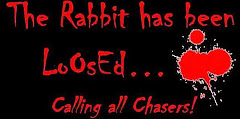Last week before my teaching on Luke 19, a lovely woman named Virginia asked me to help her find the lyrics to an old hymn. She had already desperately searched all of the hymnals at the residence home and her granddaughter had come up empty as well on her outside search.
I figured that if she told me whatever of the lyrics she remembered, I could plug them into the web browser and see what came up. She could remember these lines: PRECIOUS LORD TAKE MY HAND, LEAD ME HOME, I AM WEAK, I AM WORN.
I had never heard this song, but most people have. I found it on the internet. Written in 1932 by Thomas Dorsey after the death of his wife and child, it is a lovely worship song of humility and grace. Here are the lyrics and I'll also post a few links to watch various artists sing it online.
Precious Lord Take My Hand
Precious Lord, take my hand,
Lead me on, let me stand,
I am tired, I am weak, I am worn;
Through the storm, through the night,
Lead me on to the light
Refrain:
Take my hand, precious Lord,
Lead me home.
When my way grows drear,
Precious Lord, linger near,
When my life is almost gone,
Hear my cry, hear my call,
Hold my hand lest I fall:
(Refrain)
When the darkness appears
And the night draws near,
And the day is past and gone,
At the river I stand,
Guide my feet, hold my hand:
(Refrain)
Words: Thomas A. Dorsey, 1932.
NARRATION BY THOMAS DORSEY: http://www.youtube.com/watch?v=zlmCflPD2s8
AS SUNG BY THOMAS DORSEY: http://www.youtube.com/watch?v=kA0UV62zQFc&feature=related
AS SUNG BY ELVIS PRESLEY: http://www.youtube.com/watch?v=EeeZr6uIHj4&feature=related
AS SUNG BY KELLY PRICE: http://www.youtube.com/watch?v=bJwUpW7ioiA&feature=fvw
Monday, June 28, 2010
LUKE 19:45 into LUKE 20: a line-by-line teaching
Today at Crowne Healthcare and Rehab, we'll be teaching Luke 19 and into 20. Yeshua is getting mighty close to His last Pesach (Passover) and the tension is building in the Spirit... I used my NKJV Bible and the Stern's Complete Jewish Bible Commentary along with the Ruach Hakodesh (Holy Spirit) to create this teaching.
God bless you
Ellen C Maze
Alef, tav and menorah (the alpha and the omega hovering over the Lightstand of God)
Luke 19: Jesus has made it to Jerusalem and just prophesied to the people that because of their hard heartedness, the temple would be destroyed and not one stone would be left upon another (vs.41-44)
v.45 Then He went into the temple and began to drive out those who bought and sold in it, 46 saying to them, “It is written, ‘My house is a house of prayer,’ but you have made it a ‘den of thieves.’”
WHY SO ANGRY? Pilgrims to Jerusalem depended on merchants to purchase the required sacrificial animals and products at festival time, but Jesus objects to them doing business on the Temple grounds. They have the entire city to sell their wares, but for ease of commerce, they choose to line up on Holy Ground, which is despicable to Jesus because trading is hardly ever just and God commands it be performed outside of His courts. It has less to do with the pagan symbols on the coins than the act of trading and making profit in the one place that should be 100% dedicated to the service and worship of God.
47 And He was teaching daily in the temple. But the chief priests, the scribes, and the leaders of the people sought to destroy Him, 48 and were unable to do anything; for all the people were very attentive to hear Him. (hung on His words)
Luke 20:1 Now it happened on one of those days, as He taught the people in the temple and preached the gospel, that the chief priests and the scribes, together with the elders, confronted Him 2 and spoke to Him, saying, “Tell us, by what authority are You doing these things? Or who is he who gave You this authority?”
3 But He answered and said to them, “I also will ask you one thing, and answer Me: 4 The baptism of John—was it from heaven or from men?”
Questions: this was a common way for the Tzaddikim (religious leaders) to interrogate a suspected blasphemer or faker by asking direct questions relating to God’s Torah (Law, Scripture) and Halakah (the way to walk with God). The disgust of the religious leaders is coming to a head and they want to know once and for all if Jesus will back down off His claims that He is God, or will He hang on to His story unto death. Jesus turns it around by questioning their authority in the same way they questioned Him!
5 And they reasoned among themselves, saying, “If we say, ‘From heaven,’ He will say, ‘Why then did you not believe him?’ 6 But if we say, ‘From men,’ all the people will stone us, for they are persuaded that John was a prophet.” 7 So they answered that they did not know where it was from. 8 And Jesus said to them, “Neither will I tell you by what authority I do these things.”
Liars: Jesus is not obligated to answer them because they lied. They preferred to remain in the Dark than to admit that John’s baptism was from God—because John called everyone to repentance and to faith in Jesus Christ as God’s Son and God with us (Emmanuel).
9 Then He began to tell the people this parable: “A certain man planted a vineyard, leased it to vinedressers, and went into a far country for a long time. 10 Now at vintage-time he sent a servant to the vinedressers, that they might give him some of the fruit of the vineyard. But the vinedressers beat him and sent him away empty-handed. 11 Again he sent another servant; and they beat him also, treated him shamefully, and sent him away empty-handed. 12 And again he sent a third; and they wounded him also and cast him out. 13 “Then the owner of the vineyard said, ‘What shall I do? I will send my beloved son. Probably they will respect him when they see him.’ 14 But when the vinedressers saw him, they reasoned among themselves, saying, ‘This is the heir. Come, let us kill him, that the inheritance may be ours.’ 15 So they cast him out of the vineyard and killed him. Therefore what will the owner of the vineyard do to them?
16 He will come and destroy those vinedressers and give the vineyard to others.” And when they heard it they said, “Certainly not!”
Heaven’s Forbid! That is another way of saying the exclamation ‘Certainly not!’ The unbelieving religious Jews recognize the elements of this parable and Jesus is saying that they will have no portion in the kingdom of God because they have rejected the One God sent. He’s been saying this all along and the hardhearted ones still haven’t softened.
17 Then He looked at them and said, “What then is this that is written: ‘ The stone which the builders rejected has become the chief cornerstone’? 18 Whoever falls on that stone will be broken; but on whomever it falls, it will grind him to powder.”
The cornerstone: Whoever falls on that stone, Jesus (Yeshua), will be broken into pieces (his erect pride will be done away with and with humiliation, he will recognize his sin and repent). But if he persists in his own way, apart from God, the stone will fall on him and crush him to pieces (utterly destroy those who do not believe). Compare John 3:16. The less traumatic route that Jesus proposes is to accept the Stone without having to fall or be crushed.
19 And the chief priests and the scribes that very hour sought to lay hands on Him, but they feared the people—for they knew He had spoken this parable against them.
Yikes! For the hundredth time, Jesus has quoted their own Law against them, trying to show them how to interpret the Scriptures. But because the Scripture prophecies refer to Him as Messiah, God and King, they reject not only Him and His explanation of the Scriptures, but they are also rejected the Father by doing so. They want Him to hush and are working overtime to have Him arrested and executed. The ball is rolling now and soon, the time will be right for Jesus to sacrifice Himself for us.
20 So they watched Him, and sent spies who pretended to be righteous, that they might seize on His words, in order to deliver Him to the power and the authority of the governor.
Good Ol’ Luke: Only Luke adds this insight to the motivations of the unbelievers to show their duplicitous nature. Matthew and Mark report on this event, but only Luke spells it out like this. Luke often speaks more straightforward, and explains parables and intentions and one reason may be that he wrote his Gospel for a majority of Gentile believers and they –like us—wouldn’t automatically have the Hebraic understanding of what Jesus and His people did and said.
21 Then they asked Him, saying, “Teacher, we know that You say and teach rightly, and You do not show personal favoritism, but teach the way of God in truth: 22 Is it lawful for us to pay taxes to Caesar or not?”
23 But He perceived their craftiness, and said to them, “Why do you test Me? 24 Show Me a denarius. Whose image and inscription does it have?” They answered and said, “Caesar’s.” 25 And He said to them, “Render therefore to Caesar the things that are Caesar’s, and to God the things that are God’s.” 26 But they could not catch Him in His words in the presence of the people. And they marveled at His answer and kept silent.
Subscribe to:
Posts (Atom)






